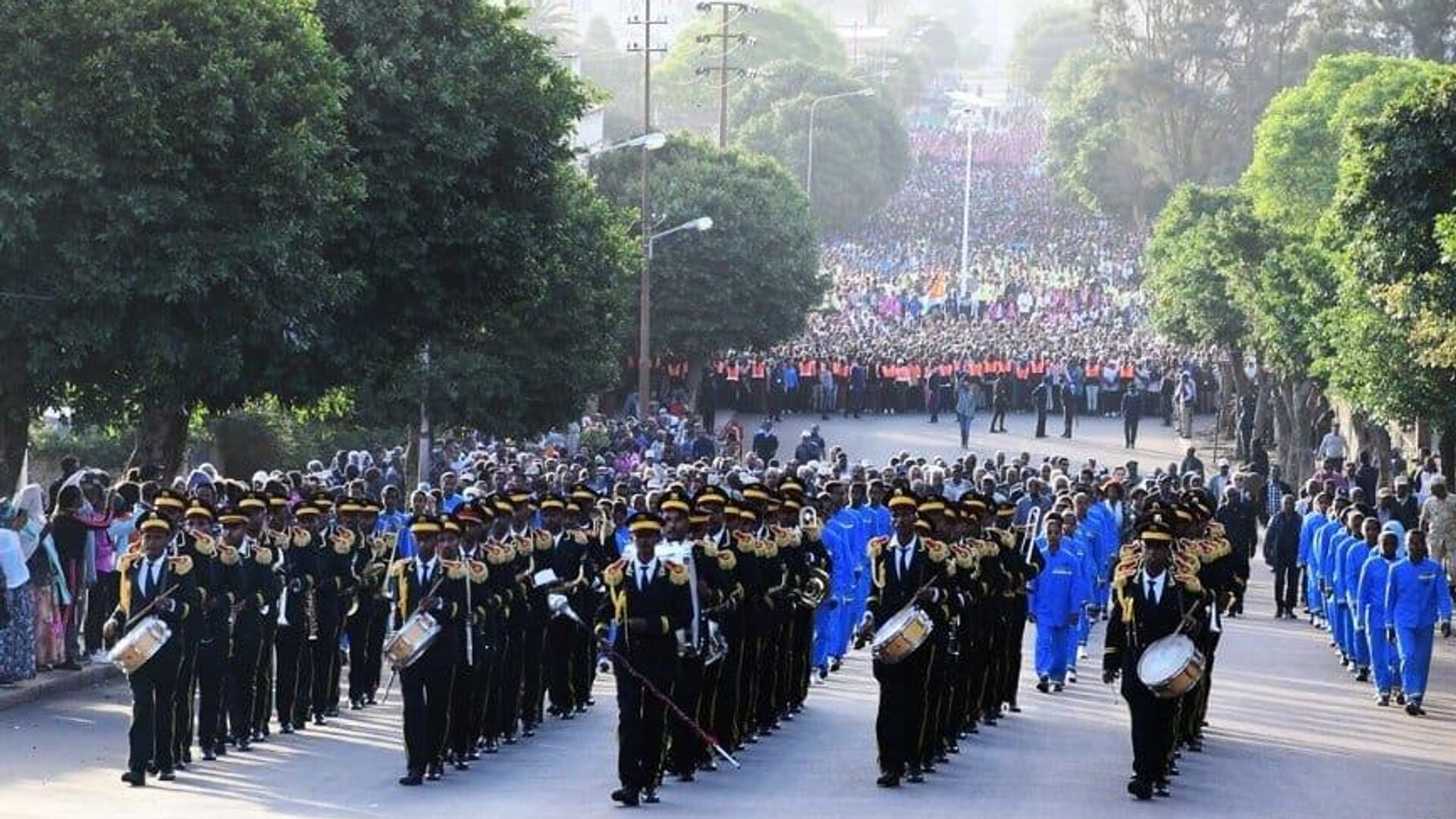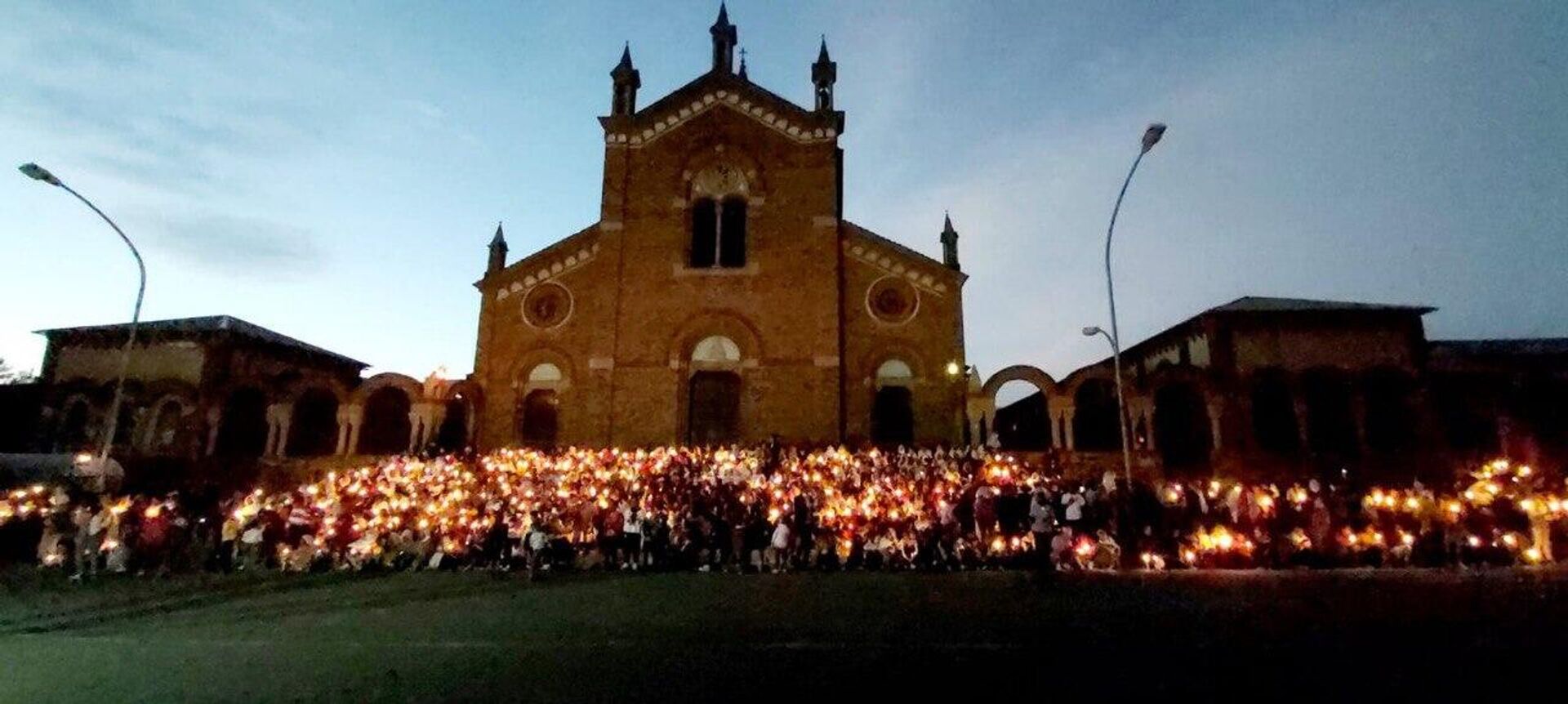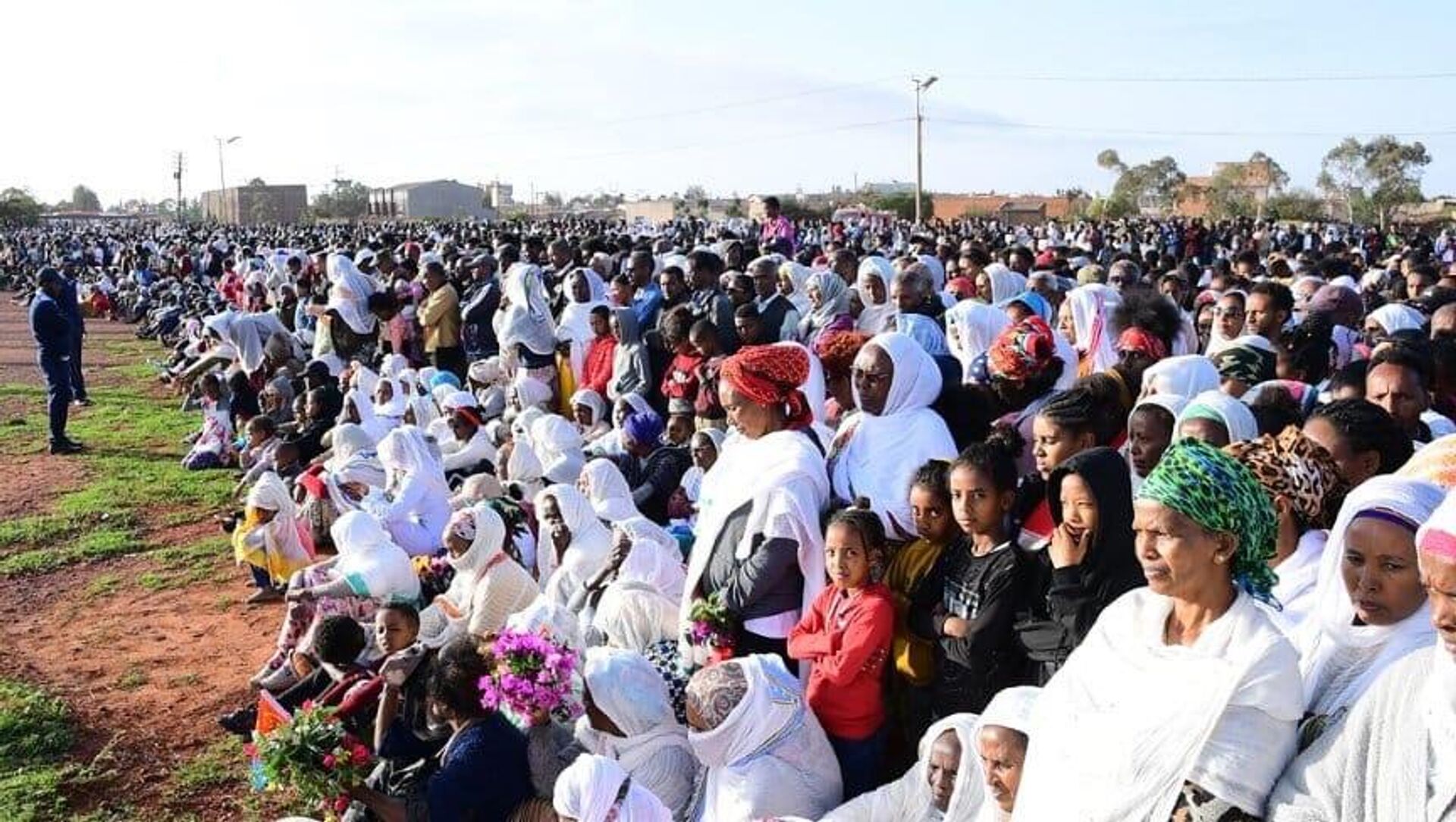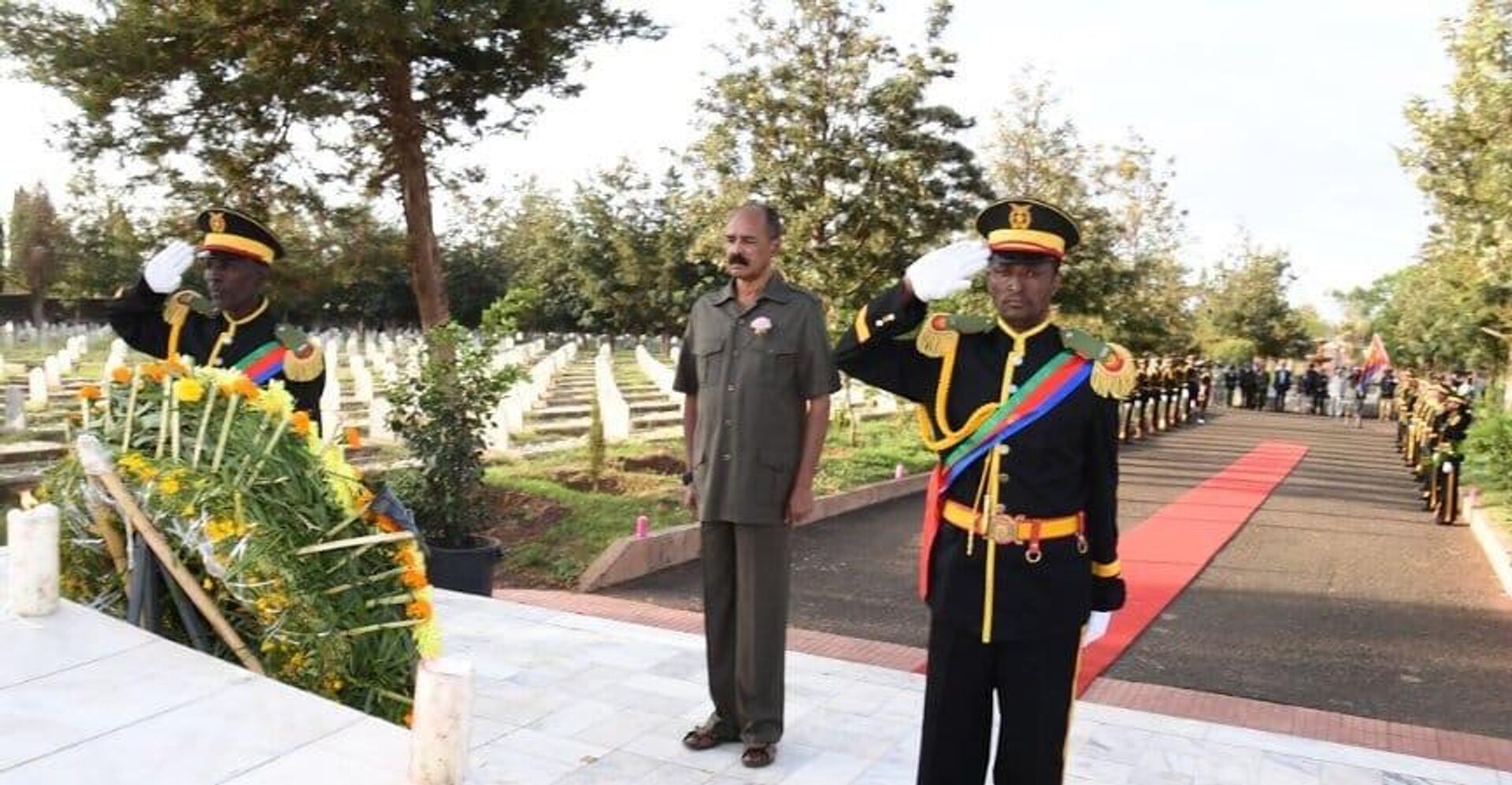https://en.sputniknews.africa/20230620/what-is-eritrea-martyrs-day-1060038989.html
What is Eritrea Martyrs' Day?
What is Eritrea Martyrs' Day?
Sputnik Africa
After the Second World War, in 1952 Ethiopia and Eritrea formed a federation in a UN General Assembly-brokered decision. Eritrea was supposed to be autonomous... 20.06.2023, Sputnik Africa
2023-06-20T13:02+0200
2023-06-20T13:02+0200
2023-06-20T15:00+0200
sub-saharan africa
east africa
eritrea
holidays
national holiday
independence
british colonialism
colonialism
isaias afwerki
https://cdn1.img.sputniknews.africa/img/07e7/06/14/1060043510_0:6:864:492_1920x0_80_0_0_e6926cf5479bd33496cdca21dbe96620.jpg
Today Eritrea is commemorating the 32nd Anniversary of Martyrs' Day – one of the most significant events in the country's history. This day was established to honor those who lost their lives battling for the country's freedom between 1961 and 1991. Later, it also became a sate to commemorate those who fought in the Eritrean–Ethiopian War of 1998-2000.Eritrea's history of gaining independence Italy's colonial push into Africa was defeated in the Battle of Adua in 1869, leading to the founding of a region that is today known as Eritrea, an Italian colony from 1890 until the Second World War. Italy occupied neighboring Ethiopia in 1936–1941.During World War II, the Italians were expelled from the African soil. In 1949 the British took over management of Eritrea as a United Nations trust territory, but there was disagreement throughout the international community over how to effectively deal with Eritrea. The federation of Ethiopia and Eritrea was established as a result of Resolution 390 of the UN General Assembly in 1952; Eritrea was supposed to have a certain degree of autonomy in the federation. Nevertheless, in 1962, Ethiopian Emperor Haile Selassie conquered the country and forcibly abolished the Eritrean parliament.As a result, the Eritrean War of Independence began, which continued until May 1991, when the People's Democratic Republic of Ethiopia (the successor state to Selassie's empire) was successfully driven out of Eritrea.The most devastating period of the conflict was the year 1982, when Ethiopia launched the so-called Red Star Campaign, a large-scale offensive, which was aimed to suppress Eritrea's independence movement.According to estimates, the conflict directly caused the death of 10% of Eritrea's population. To honor those who gave their lives fighting for the country's freedom, Eritrea established this national holiday.After the Eritrean–Ethiopian War of 1998-2000 caused by a border dispute, the Martyrs' Day also became a date to honor the Eritrean participants of the conflict, viewed in their homeland as "martyrs of sovereignity protection".Why June 20th is the day of commemoration?The annual commemoration of Martyrs' Day on June 20 is a respected tradition in Eritrea with a number of customs that govern the nation's moral standards. Martyrs' Day was the first officially observed national holiday in independent Eritrea on June 19, 1991. At Asmara Stadium, Tegadalay Isaias Afwerki, the country's now-president and then-chairman of the Eritrean People's Liberation Front (EPLF) – the armed group that fought for the country's independence –addressed the Eritrean public with his first historic speech following independence. The EPLF announced June 20 as Eritrea's Martyrs' Day on that momentous day.The date of June 20 was chosen as Martyrs' Day in honor of Eritrea's numerous fallen heroes who, on that day in 1982, put an end to Ethiopia's Red Star Campaign.How Eritreans commemorate Martyrs' DayThe martyrs of Eritrea are revered by their people. Every formal event or ceremony, no matter how great or little, always begins or ends with a moment of silence to remember the martyrs. Country's President Isaias Afwerki speaks while laying a memorial wreath at the Patriots Cemetery in Asmara, Eritrea's capital. Communities hold candlelight vigils, and memorial services are performed at mosques and churches. Offices and businesses are closed. As part of their obligation to support the families of the victims, Eritrean communities both at home and abroad donate money, while artists pay tribute to the martyrs via poetry, songs, plays, movies, paintings, and other forms of art.
east africa
eritrea
Sputnik Africa
feedback@sputniknews.com
+74956456601
MIA „Rossiya Segodnya“
2023
News
en_EN
Sputnik Africa
feedback@sputniknews.com
+74956456601
MIA „Rossiya Segodnya“
Sputnik Africa
feedback@sputniknews.com
+74956456601
MIA „Rossiya Segodnya“
east africa, eritrea, holidays, national holiday, independence, british colonialism, colonialism, isaias afwerki
east africa, eritrea, holidays, national holiday, independence, british colonialism, colonialism, isaias afwerki
What is Eritrea Martyrs' Day?
13:02 20.06.2023 (Updated: 15:00 20.06.2023) After the Second World War, in 1952 Ethiopia and Eritrea formed a federation in a UN General Assembly-brokered decision. Eritrea was supposed to be autonomous within the federation, but Ethiopia invaded its territory and proclaimed itself as the only ruling side, which led to the Eritrean war for independence.
Today Eritrea is commemorating the 32nd Anniversary of Martyrs' Day – one of the most significant events in the country's history. This day was established to honor those who lost their lives battling for the country's freedom between 1961 and 1991. Later, it also became a sate to commemorate those who fought in the Eritrean–Ethiopian War of 1998-2000.
Eritrea's history of gaining independence
Italy's colonial push into Africa was defeated in the Battle of Adua in 1869, leading to the founding of a region that is today known as
Eritrea, an Italian colony from 1890 until the Second World War. Italy occupied neighboring Ethiopia in 1936–1941.
During World War II, the Italians were expelled from the African soil. In 1949 the British took over management of Eritrea as a United Nations trust territory, but there was disagreement throughout the international community over how to effectively deal with Eritrea.
The federation of Ethiopia and Eritrea was established as a result of Resolution 390 of the UN General Assembly in 1952; Eritrea was supposed to have a certain degree of autonomy in the federation.
Nevertheless, in 1962, Ethiopian Emperor Haile Selassie conquered the country and forcibly abolished the Eritrean parliament.
As a result, the Eritrean War of Independence began, which continued until May 1991, when the People's Democratic Republic of Ethiopia (the successor state to Selassie's empire) was successfully driven out of Eritrea.
The most devastating period of the conflict was the year 1982, when Ethiopia launched the so-called Red Star Campaign, a large-scale offensive, which was aimed to suppress Eritrea's independence movement.
According to estimates, the conflict directly caused the death of 10% of Eritrea's population. To honor those who gave their lives fighting for the country's freedom, Eritrea established this national holiday.
After the Eritrean–Ethiopian War of 1998-2000 caused by a border dispute, the Martyrs' Day also became a date to honor the Eritrean participants of the conflict, viewed in their homeland as "martyrs of sovereignity protection".
Why June 20th is the day of commemoration?
The annual commemoration of Martyrs' Day on June 20 is a respected tradition in Eritrea with a number of customs that govern the nation's moral standards. Martyrs' Day was the first officially observed national holiday in independent Eritrea on June 19, 1991.
At Asmara Stadium, Tegadalay Isaias Afwerki, the country's now-president and then-chairman of the Eritrean People's Liberation Front (EPLF) – the armed group that fought for the country's independence –addressed the Eritrean public with his first historic speech following independence. The EPLF announced June 20 as Eritrea's Martyrs' Day on that momentous day.
The date of June 20 was chosen as Martyrs' Day in honor of Eritrea's numerous fallen heroes who, on that day in 1982, put an end to Ethiopia's Red Star Campaign.
How Eritreans commemorate Martyrs' Day
The martyrs of Eritrea are revered by their people. Every formal event or ceremony, no matter how great or little, always begins or ends with a moment of silence to remember the martyrs. Country's President
Isaias Afwerki speaks while laying a memorial wreath at the Patriots Cemetery in Asmara, Eritrea's capital.
Communities hold candlelight vigils, and memorial services are performed at mosques and churches. Offices and businesses are closed.
As part of their obligation to support the families of the victims, Eritrean communities both at home and abroad donate money, while artists pay tribute to the martyrs via poetry, songs, plays, movies, paintings, and other forms of art.




